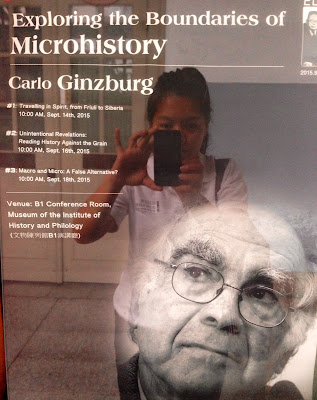介紹卑南族作家孫大川的三本散文集。
(paelabang danapan, second from left)
Calling himself a 'stage builder for Formosans', paelabang danapan (Puyuma Nation) as far as I see indeed deserves this epithet. I feel it from our encounters, his endeavors; and I see it from the following three books that collect his various pieces of writing from 1985 until 2010.
Professionally speaking, paelabang danapan is a professor of Formosan history, literature and political development; Chinese and western philosophies have also since been his research interests. He taught at various places including Soochow, National Dong Hwa and National Chengchi universities.
Although he personally witnessed and believed in the silent power of an ivory tower like Oxford and Cambridge as well as that of a European monastery during his MA study in Belgium
— "I truly believe my contemporary intellectuals should take building the ivory tower [of knowledge] as their mission of the time. Only by standing above reality can we come to a true understanding of reality! " (
The World of Sea and Mountain, p. 77)
—, his deep concerns for fellow indigenous Formosans, 'the Peoples of the Dusk", prevented him from building one, let alone hiding in one.
Instead, he has created a long and outstanding career in politics, serving twice in the Council of Indigenous Peoples (CIP), first as its very 1st Deputy Minister, then as its 7th Minister. Now he is the Deputy President of the Control Yuan. I think for him, only by standing 'entangled in reality' rather than above or away, can he lay the foundation for indigenous development in perspective. Entangled until the end of his day.



















